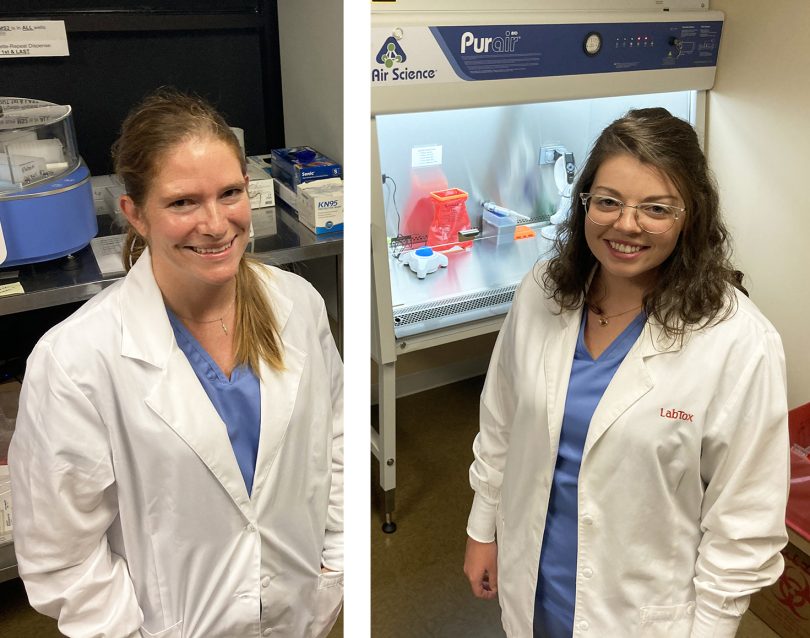
Transylvania University alumni serve their alma mater in various ways — from donating to The Transylvania Fund to organizing class reunions. It seems to be in their DNA, in fact.
Two of them are helping the university stay open during the pandemic. That involves RNA as well.
Mallory Morris ’09 (pictured left) and Hannah Puckett ’20 work for the local LabTox toxicology and molecular laboratories, which is testing the Transylvania community for COVID-19.
The lab’s 24-hour turnaround time — coupled with a high accuracy rate — helps with the logistics of being able to provide students with campus housing and in-person classes. “I feel like it’s really helped — especially universities like Transylvania,” said Morris, a molecular scientist. “They are getting results the next day on whether their students are positive or negative for COVID, which I think helps keep school going. You don’t have to be isolated for seven days waiting for your results to get back.”
Morris, a chemistry major who went on to earn a Ph.D. in the field, knows from experience the importance of students being on campus. “Transylvania is an experience,” she said. “You need to be a part of the community.”
Puckett, a laboratory technician and recent graduate who majored in biology, said it’s gratifying to know that through her job she’s helping keep her alma mater open. “It makes it really interesting and more enjoyable to come here and help the place where I just came from,” she said.
During the fall term, Transylvania is requiring students to be tested if they choose to return to campus housing or take classes in person. And they’re asked to limit being around others until their results come back.
The nasal swab used for the test goes into a glass tube containing a chemical reagent to preserve the genetic material. At the lab, the patient information is entered into the computer and then the sample heads back to the molecular lab to extract the genes. For this, dye is added to the material and it’s swirled in a vortex before going into a machine that performs something called a polymerase chain reaction, which, Morris explained, can quickly amplify a DNA or RNA molecule into millions of copies via a biochemical process. This amplification helps them detect the exact genes for SARS-CoV-2.
“This robust, sensitive and advanced testing methodology provides quick results that you can trust,” Morris said.
LabTox also offers a walk-in clinic for community testing at 409 W. New Circle Road. The hours are Monday and Friday from 9 a.m.-5 p.m. and Tuesday through Thursday from 9 a.m. to 8 p.m.

